Search Results for Tag: Asia
Journalists@Work: Oudom Tat
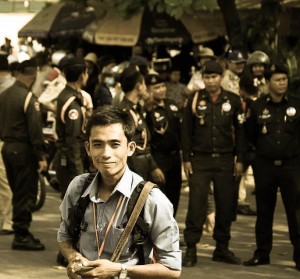 Oudom Tat, 25, is a photojournalist with Voice of Democracy (VOD), one of the few independent media outlets in Cambodia. He was first introduced to the news business at the age of 13 when he started working as a paperboy to help support his family. The Phnom Penh native then went on to teach English and eventually became a project assistant at the Cambodian Center for Independent Media. It was there he discovered his true calling.
Oudom Tat, 25, is a photojournalist with Voice of Democracy (VOD), one of the few independent media outlets in Cambodia. He was first introduced to the news business at the age of 13 when he started working as a paperboy to help support his family. The Phnom Penh native then went on to teach English and eventually became a project assistant at the Cambodian Center for Independent Media. It was there he discovered his true calling.
Oudom also produces radio stories and video pieces, and his film about the shooting of three workers in the Cambodian garment sector was selected as a finalist entry at the 2013 German Development Media Awards. These days though, Oudom is mainly doing what he loves best, taking pictures of news events around Cambodia, which he hopes will help bring about democratic change in the country. He spoke to onMedia about his work.
![]() read more
read more
Local news site network growing fast in Asia
 English speakers in big Asian cities can buy English-language newspapers but many still want more detailed information about what’s happening in their own neighborhoods. That was an unfilled niche that American journalist Byron Perry saw in his adopted city, Bangkok. In 2011, he launched Coconuts out of his apartment to provide local news in English. Now he’s got sites in five Asian cities and big plans for the future.
English speakers in big Asian cities can buy English-language newspapers but many still want more detailed information about what’s happening in their own neighborhoods. That was an unfilled niche that American journalist Byron Perry saw in his adopted city, Bangkok. In 2011, he launched Coconuts out of his apartment to provide local news in English. Now he’s got sites in five Asian cities and big plans for the future.
![]() read more
read more
Journalists@Work: Pramila Krishnan
Pramila Modachur Krishnan is a senior reporter at the Deccan Chronicle, an English-language daily in Chennai, the capital of India’s Tamil Nadu state. Pramila’s parents are both farmers, and she was the first in her family to get a university education; she has both a bachelor’s and master’s degree. Now 27, she’s especially interested in reporting about the environment and issues facing women and children. In 2013, she took part in a DW Akademie workshop on environmental reporting in Chennai. Her pluck, resourcefulness and dedication convinced her trainers to recommend she attend the recent UN climate conference in Warsaw. onMedia asked her a few questions about her chosen career.
![]() read more
read more
Using graphics in your video, and using them well

Photo: flickr/gywst
Infographics can enhance a visual story’s appeal and are extremely helpful in presenting complex information in an easy-to-understand way. Now, it’s easier than ever to use graphics in your videos thanks to more advanced and user-friendly software. OnMedia’s Kyle James takes a look at how a production team from Indonesia used graphics effectively in their award winning video feature.
![]() read more
read more
Calling for applications for data-driven journalism workshop, Cambodia
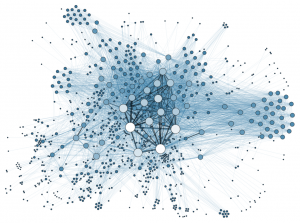
Photo by Calvinius via Wikimedia Commons
DW Akademie will conduct a two-week workshop on data-driven journalism in the Cambodian capital, Phnom Penh from January 20 – 31, 2014.
Cambodian journalists, citizen journalists, IT or social media specialists, journalism students and journalism trainers are invited to apply to take part in this training course.
You can find out more about the workshop and download the application documents below.
Please note that the application deadline for the workshop has been extended to Tuesday, December 31, 2013.
1 Call for Applications ‘Data-driven Journalism’
2. Project Outline ‘Data-driven Journalism’
3 Application Form ‘Data-driven Journalism’
4. Employers Declaration ‘Data-driven Journalism’
Good luck with your applications and feel free to share information about the workshop with others who might be interested.
In dialogue with Mongolian media
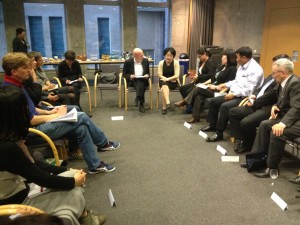 A list of forbidden words; newspapers influenced by politicians; and in the capital Ulan Bator, Mongolian journalists refrain from criticizing their colleagues because all journalists know each other.
A list of forbidden words; newspapers influenced by politicians; and in the capital Ulan Bator, Mongolian journalists refrain from criticizing their colleagues because all journalists know each other.
At a recent DW Akademie Media Dialogue in Berlin, a group of visiting journalists, editors and media experts from Mongolia gave an insight into media development in their country.
German journalists attending were keen to find out about press freedom in Mongolia; who exactly owns private media; and, what progress is being made towards press industry self regulation.
It was also another opportunity for the visiting Mongolian journalists to compare journalistic practices and media regulation between Germany and Mongolia.
Following the end of the Soviet era, Mongolia introduced a number of laws to make reforms in public broadcasting, freedom of information and to prevent media censorship.
In 2010, Reporters without Borders ranked Mongolia in its Press Freedom Index at 76. This year Mongolia was ranked 98.
One topic that generated a lot of discussion was the so-called “list of forbidden words”. Journalists explained how Mongolia’s Communications Regulatory Commission (CRC) is under strong political pressure to make media organizations use software to filter or hide “forbidden words” in online reader comments that are critical of government or insulting.
To explore how Mongolia’s media is developing, onMedia spoke with Munkhmandakh Myagmar, Executive Director of the Mongolian Press Institute; and, Tserenjav Demberel, Executive Director of Transparency Foundation Mongolia, and a blogger on media issues.
![]() read more
read more
Journalists@Work: Tenzin Rabgye
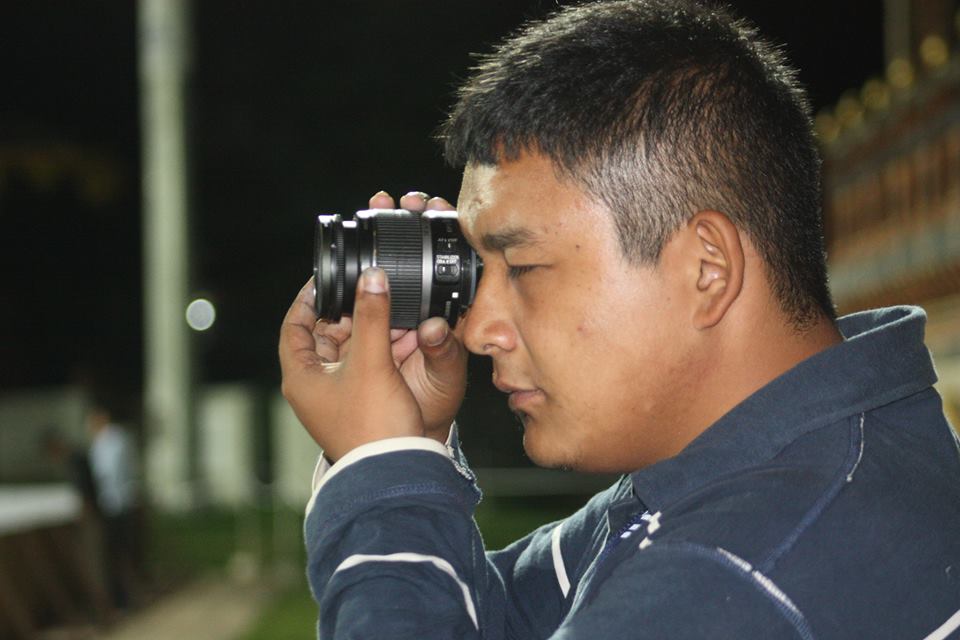 Tenzin Rabgye is a television reporter and news anchor in the tiny mountainous kingdom of Bhutan, which is tucked into the Himalayas between India and China. The 25-year old journalist works for the country’s public broadcaster, Bhutan Broadcasting Service (BBS). Television and the Internet weren’t legalized until 1999 in Bhutan, making it one of the last country’s in the world to do so. Before that, the only media in the country were a state-owned newspaper and BBS radio. Despite this, social media has rapidly grown and now plays a major role in Tenzin’s daily work – In fact, he responded to my Facebook request for an interview within a minute of me messaging to him.
Tenzin Rabgye is a television reporter and news anchor in the tiny mountainous kingdom of Bhutan, which is tucked into the Himalayas between India and China. The 25-year old journalist works for the country’s public broadcaster, Bhutan Broadcasting Service (BBS). Television and the Internet weren’t legalized until 1999 in Bhutan, making it one of the last country’s in the world to do so. Before that, the only media in the country were a state-owned newspaper and BBS radio. Despite this, social media has rapidly grown and now plays a major role in Tenzin’s daily work – In fact, he responded to my Facebook request for an interview within a minute of me messaging to him.
Tenzin works in English and Dzonghka, the main language of Bhutan. He also speaks several dialects as well as Nepali – useful skills when reporting from Bhutan’s numerous remote areas.
![]() read more
read more
South Asian journalists tackle climate change reporting
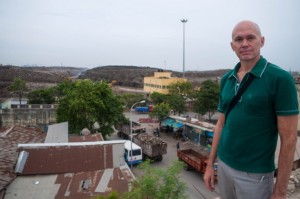
Kyle James has been conducting DW Akademie workshops in Asia and Central Asia since 2008, covering radio production, multimedia journalism and print.
The smell was nauseating and the sight quite a depressing one. The ten participants of the Climate Change Workshop in Chennai / India, along with the two trainers and our guide, had just scrambled up to the top of a building to get a better view of the Kodungaiyur dumpyard in the northern part of the city. We were there to see how waste disposal, unregulated construction, and short-sighted transportation and energy policies were harming the environment and contributing to climate change by releasing greenhouse gases and paving over important carbon sinks like wetlands.
![]() read more
read more
Journalists@Work: Kem Sokunthy
In this installment of our Journalists@Work series, we talked to Kem Sokunthy (Kunthy), a radio producer from Cambodia. In April 2013, Kunthy participated in the radio workshop “Inclusion of people with disabilities” held by DW Akademie and the Women’s Media Centre of Cambodia (WMC).
Kunthy studied literature, education science and political science at different universities in Phnom Penh. During her studies, she also gained journalistic skills at the Cambodian Ministry of Information.
These days, Kunthy works for WMC Radio FM 102, which produces educational programs designed for all sectors of Cambodian society, especially women in rural areas. In this blog post, she gives us some insight into her work as a journalist in Cambodia.
![]() read more
read more
Journalists@Work: Taufique Ahmed
Taufique Ahmed has been working at Channel i, Bangladesh’s leading private satellite TV channel, since 2003. Currently, Taufique is Manager of Program Development in the News & Current Affairs department at Channel i, which was launched in 1999. His tasks include responding to viewers’ questions, comments and/or complaints regarding news programming and scheduling. He also monitors and supervises social media in the Development Journalism department – and blogs regularly in Bengali and English.
![]() read more
read more




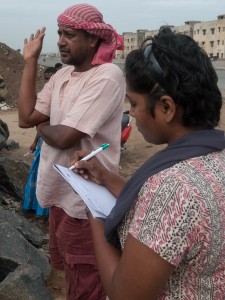

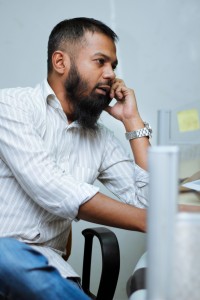




Feedback